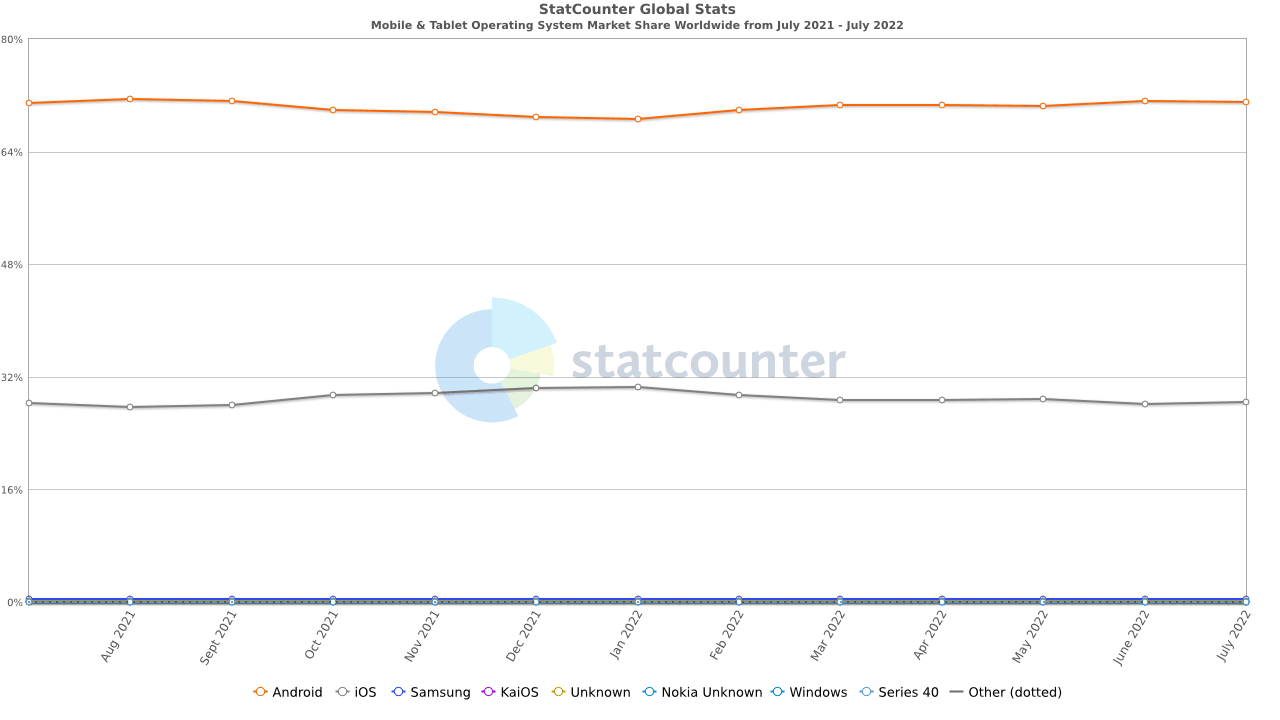Choosing a Platform for an App: What You Should Consider
With an estimated 6.7 billion smartphone users worldwide, it is safe to say that mobile apps will continue to grow and offer unprecedented opportunities for those willing to take advantage of it.
The average time spent daily on a smartphone in the United States in 2021 was 5 ½ hours a day. That’s almost 84 days in a year, that is fought over by Android and iOS, who together control almost entire mobile operating system market.
The question many clients face however is whether to list their app on Android, who holds the crown for the largest number of devices, or iOS, where users are more likely to spend money.
Like the answer to many questions, the answer depends on many factors
Demographics:

The average average price for iPhone is around 2.7 times more than Android devices, allowing the latter to possess a bigger market share, making it ideal if your end goal is to reach as many users as you can. One must, however, remember that customers who opt for affordable platforms favour free apps, in contrast to iOS users.
Revenue Model
Research from Business Insider, an analytics company discovered the revenue model of iOS to be generating more revenue than Android, who holds the crown for the biggest number of downloads.
So ponder on your monetisation strategy carefully. Will you be earning revenue through the number of users (ads), or from the users?
Loyalty
Nearly half of the Google users polled in the United States said it was likely or very likely that they would switch to a different smartphone brand given the chance. But as this infographic demonstrates, this isn’t a typical example of the smartphone market’s fickle customer base; rather, it’s a genuine issue that the company needs to address. Apple, the kings of brand loyalty in the technology industry, had the opposite outcome: 52% of their users said it was highly unlikely or unlikely that they would switch brands. Although Samsung can’t quite claim that percentage, a respectable 45 percent said they would continue to use the brand in the future.
Security and Updating
Updates are important as they allow app developers to push new features and improve security.
Leading the pack in this area is iOS, known for triggering mass updates, which is why over 80% of its devices have the most recent OS update. Android, cannot claim the same.
In a nutshell, apps aimed at IOS devices will require little testing, while Android apps will require more to support the current and legacy operating systems.
Tablets
The tablet market must not be discounted as 15,6% of the global population were earmarked to be tablet users in 2016. 60% of this was projected to be commanded by Android, while iOS owned 25%.
iOS tablets, however, appear to be more attractive to business users, while Android tablets are for the average consumer.
Conclusion
Picking the right app for your platform is no walk in the park. It takes the careful evaluation of your idea, strategic objectives and budgets, which is why we urge you to pick a software house that will be able to guide you through it.
Need help picking a platform for your idea? Tell us more about it here, and we will try to help you.
October 17, 2018 / Posted by:
You May Also Like